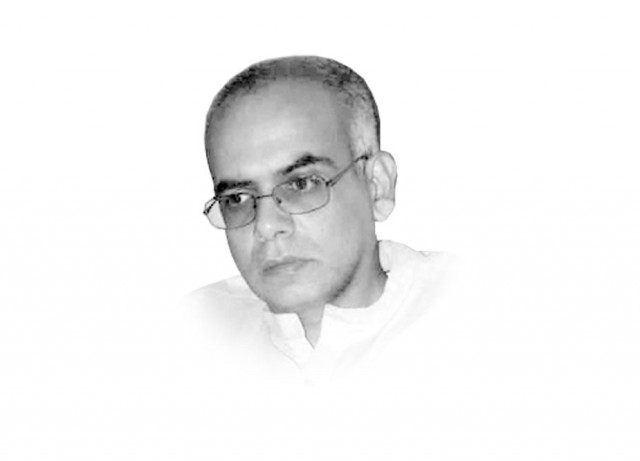Development on the back burner again
While current security situation is precarious, it shouldn't translate into issuing blank cheque for security expenses

The writer is a post-doctoral fellow at McGill University
After presiding over a long security meeting at the GHQ, the PM has apparently directed his party’s leadership to take immediate steps to review the Public Sector Development Programme (PSDP) as well as Punjab’s annual development allocation, where the PML-N also holds sway. Moreover, the finance minister has been asked to approach the other provincial governments asking them to follow the federal government’s decision to review their provincial development priorities in order to free up more resources for security purposes.
It is true that Pakistan has witnessed much human suffering and economic loss due to the escalating security threats in the country over the past decade or so. Our economy is in a dire condition, and terrorist threats within the country remain a major factor for this lacklustre performance. The limited amount of resources available to the government due to unimpressive economic growth seems to have now compelled the government to reroute its development allocations in order to improve the security situation.
This resource diversion may aim to signal the government’s newfound resolve to finally take the internal security situation more seriously, however, ignoring development needs for the sake of other government priorities is nothing new. Ongoing defence and debt repayment needs typically leave meagre budgetary allocations for addressing even the most basic human development needs of the vast majority of our citizenry.
The newly formed committee is supposed to suggest how much of the existing development funds can be channelled towards security needs, and how long different development projects should be slowed down due to unavailability of required funds. Both the civil and military leadership has reportedly agreed not to let projects being undertaken with the support of other countries to be affected such as the Lahore-Karachi Motorway, creation of the Pakistan Economic Corridor and other energy related projects. While these are important projects, what about other development programmes which are supposed to address health or education goals? How many children will have to stay out of school due to deferment of funds, what illnesses will remain untreated, and what other basic requirements of the citizenry will remain pending in order to prioritise security-related expenses?
While the current security situation is precarious and the need to protect the lives of our citizenry is a prerequisite, this requirement should not be translated into issuing a blank cheque for heightened security expenditure. Security-related activities need to be prioritised very carefully, to prevent use of government funds meant for schools or hospitals to purchase more bullet-proof cars for VIPs for instance, or furthering other grandiose military ambitions.
Besides ensuring sufficient resources are available to take direct action to deter the militancy menace, other less costly means must be adopted to help diffuse the prevailing levels of hatred and intolerance which motivate extremist violence in our society. Preventing the rampant use of religion for myopic power pursuits, be it in the guise of religious education or through use of the pulpit, requires greater political acumen and sustained institutional resolve instead of only investing energies in the use of coercive force.
The ability of the proposed committee, led by the nephew of the PM, and including his son-in-law, to make decisions about which development needs should be deferred, for which particular security need, does not evoke much confidence.
Published in The Express Tribune, January 2nd, 2015.
Like Opinion & Editorial on Facebook, follow @ETOpEd on Twitter to receive all updates on all our daily pieces.













COMMENTS
Comments are moderated and generally will be posted if they are on-topic and not abusive.
For more information, please see our Comments FAQ